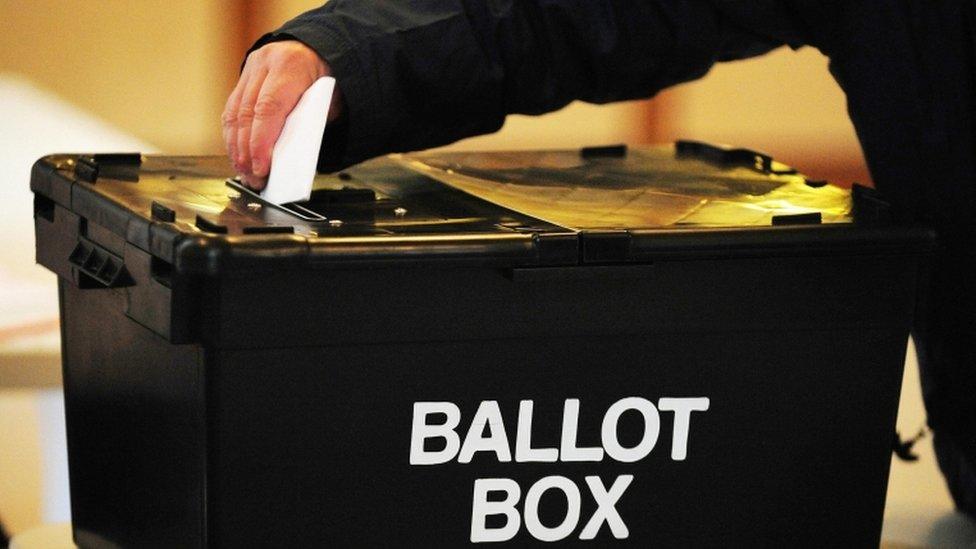Google changes rules for buying election adverts
- Published

Google will log who buys adverts and let people search an archive of election content
Google is demanding that those placing political ads during the forthcoming US elections must prove they are US citizens or permanent residents.
The demand is part of an update to its policies that tries to make political adverts more "transparent".
In addition, advertisers must reveal who has put up the cash for the advert.
Social media firms have updated their policies in the wake of revelations that their ad platforms have been abused by Russian propaganda outfits.
Google's new policy follow similar changes at Twitter and Facebook governing who can buy space for political adverts.
Tight control
In a blog announcing the change,, external Kent Walker, a Google senior vice-president, said the changes made good on a 2017 commitment to be more open about who funds political adverts.
"Advertisers will have to provide a government-issued ID and other key information," said Mr Walker.
In addition, he said, Google would release a transparency report in the summer that only deals with election-based advertising. This would detail who bought ads and how much money they spent.
It is also collecting political ads in a database that anyone will be able to search.
Initially, the ID demands will only apply to US elections, but Google said it hoped to extend the more stringent controls to other votes and campaigning seasons.
Both Facebook, external and Twitter have pledged to release more information about who buys political ads on their respective social networks. They also introduced tighter controls on who can buy ads.
Those changes came in response to a series of reports which suggested that Russian actors with links to the Kremlin had been buying political adverts and targeting them at American voters.
Facebook said the ads, of which there were about 3,000, did not support any particular candidate, but instead shared inflammatory information on sensitive topics such as immigration.
In November 2018, US mid-term elections will be held which will see hundreds of US politicians up for re-election.
- Published24 April 2018
- Published1 May 2018

- Published26 April 2018
- Published24 April 2018
